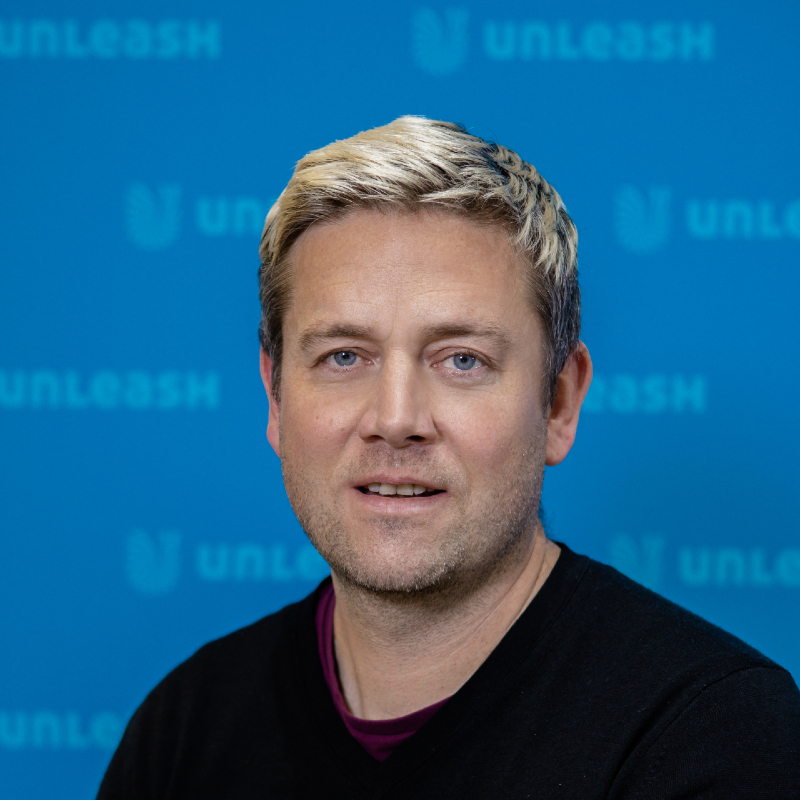‘Don’t sleepwalk into the future’ says Coursera
Coursera’s chief content officer Marni Baker Stein, gives UNLEASH exclusive insights into its annual global skills report.
Why You Should Care
The future of work will be powered by AI.
How do employers and workers get ahead?
Find out from Coursera's latest global report.
Skills are the new workplace currency.
In this context, online learning giant Coursera has dug into the skills data from 124 million learners in 100 countries globally that use its platform, and published its fifth annual Global Skills report.
UNLEASH has scoured the data, as well as exclusively sat down with Marni Baker Stein, chief content officer at Coursera, to explore the findings in more detail.
How can companies close their skills gaps with hiring budgets being squeezed? What impact is emerging technology like generative AI having on skills, but also jobs more broadly?
Here are the three key takeaways for HR leaders who want to do better around learning.
1. Combining human and digital skills
Amid the highly digital world of work, it would seem logical for digital skills to be top of the agenda. But Coursera’s research found that, in fact, if companies want to be resilient, they need to focus on digital, as well as more human skills that cannot be automated.
This finding is in line with the results of the World Economic Forum (WEF)’s 2023 Future of Jobs report.
Examples of human skills include analytical thinking, agility, emotional judgement, flexibility, change management, and collaboration.
Talking about this trend, Coursera’s Stein tells UNLEASH that human skills are always in high demand for employees and employers – they’re always in the top percentile.
She adds that Coursera is always hearing from industry partners – but also universities – how critical human skills are; “there is a lot of consumer demand [from learners] for those programs as well”.
2. Europe leads the way
Coursera’s report is truly global, and it compares, benchmarks and ranks countries in terms of their skilling success.
On top is Europe – seven of the top ten countries in Coursera’s ranking are European. Switzerland sits in first place in terms of skills proficiencies – other European countries performing very well include Spain, Germany, the Netherlands, France and Belgium.
The UK sits in 64th place, while the US lags in 78th and Canada in 82th – what explains this trend?
According to Stein, while the UK and US might be technology superpowers, the countries have seen a lack of investment by both enterprise and universities.
The other issue that when UK and US companies and governments are investing in learning, they are not “future forward enough”.
They are just looking at the skills they need right now, but “that’s not good enough anymore”, states Stein. “In a world where everything moves so fast, it is important to get ahead…and develop those talent pipelines”.
To thrive, HR leaders, according to Stein, need to double down and “get explicit around the skills they need now in the roles that they’re hiring”, as well as think about the next six, 12 and 18 months.
Don’t “sleepwalk into the future”, she warns.
In comparison, Europe has been “leading the way in skills-based education and hiring”, and really embracing skills as a currency in work.
There is lots of infrastructure to support that from the European Union, as well as national governments. One example is the Europass Skills Passport.
3. Embrace skills data and tech
The likes of LinkedIn and Workday argue that skills-focused organizations will be the leaders of the future. But this is only possible if companies have the right skills architecture and infrastructure underpinning learning and development.
Stein shares that a lot of companies say, “we believe in skills-based hiring”, but “there’s a lot of work between A and B”. And only once that work is done, and the infrastructure is in place, can employers start to really link up employees with opportunities.
“Learners don’t get a lot of information from employers about what they need in order to be successful” – and universities aren’t supporting them either.
Data, analytics and technology have a crucial role to play here in helping organizations connect learners with career opportunities, and ultimately fill their skills gaps.
From a Coursera perspective, Stein tells UNLEASH: “We have a tremendous amount of intelligence coming directly from some of the biggest employers in the world around what they need”.
This enables the online learning giant to “get smart…about those pathways to opportunities”, and get ahead of emerging learning trends.
Organizations also need to use data and tech to create skills taxonomies and profiles to help learners to create their own career paths, as well as for employers to have better visibility over their skills gaps.
Of course, generative AI is having a huge impact on the world of work in general, but it has a particularly positive role to play around upskilling and reskilling.
Within Coursera, innovation is part of its DNA and generative AI is helping the company to provide its ‘Coach’ solution. It’s essentially a “personalized contextualized tutor” that learners can use when they are doing a course on Coursera to support them with questions and problems, and most importantly in their native language.
Learning through Coursera (and beyond) over the next six to 12 months is going to be “radically improved with the help of generative AI”, concludes Stein.
Elevate your HR game! Connect with industry leaders, revolutionize processes, and unleash your potential. Join us at UNLEASH World in Paris this October.

Editorial content manager
Jon has 20 years' experience in digital journalism and more than a decade in L&D and HR publishing.